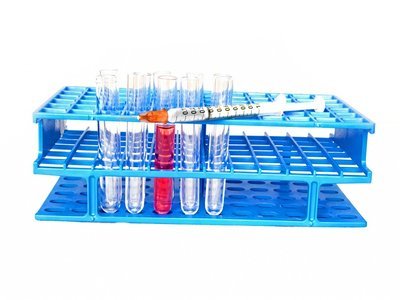Vaccines are an essential component of modern medicine, providing immunity against diseases that once posed a significant threat to public health. Vaccines utilize a range of ingredients to achieve their therapeutic benefits, including antigens, adjuvants, stabilizers, and preservatives. Each ingredient plays a specific role in enhancing the vaccine’s effectiveness and safety, making it an efficient tool in preventing the spread of infectious diseases. Despite some misconceptions regarding vaccine safety, the vast majority of ingredients used in vaccines are harmless and provided in tiny, safe quantities. [1][2]
Purpose of Vaccine Ingredients
Each ingredient in a vaccine serves a specific purpose in providing immunity against specific diseases, keeping the vaccine safe and long-lasting, and aiding production. Antigens, such as weak or dead germs, help the immune system learn how to fight off infections. Adjuvants, like aluminum, increase immunity by helping the immune system respond more strongly to the vaccine. Preservatives, like thimerosal, are used to protect the vaccine from outside bacteria or fungus, while stabilizers like sugar or gelatin help the active ingredients stay effective during production, storage, and transport. Finally, ingredients used during vaccine production, such as cell culture materials and antibiotics, are later removed, with only tiny amounts remaining in the final product. [3][4]
Ingredients That Provide Immunity
Vaccine ingredients play a crucial role in providing immunity against specific diseases. Antigens, which are small amounts of dead or weak germs, help the immune system learn to fight off infections faster and more effectively. Adjuvants, such as aluminum, help the immune system respond more strongly to vaccines, thus increasing immunity against the disease. In addition to antigens and adjuvants, vaccines also contain ingredients like stabilizers to keep the active ingredients working while the vaccine is made, stored and transported, ensuring safe and effective vaccines. [5][6]
Ingredients That Keep Vaccines Safe and Long-Lasting
Certain ingredients in vaccines help keep them safe and effective after manufacturing. Preservatives like thimerosal protect vaccines from outside bacteria or fungus and are used only in vials that contain more than one dose. Stabilizers like sugar or gelatin help the active ingredients in vaccines continue to work while they are made, stored, and moved. Additionally, adjuvants like aluminum are substances that help the immune system respond more strongly to a vaccine, increasing immunity against the disease. Every vaccine ingredient serves a purpose to make vaccines as safe and effective as possible. [7][8]
Ingredients Used During Vaccine Production
Some ingredients used during vaccine production are not needed for the vaccine to work effectively, but they are used in the production process. These ingredients are removed after production, so only tiny amounts are left in the final product. Examples of these ingredients include cell culture material like eggs to help grow the vaccine antigens, inactivating ingredients like formaldehyde to weaken or kill viruses bacteria or toxins in the vaccine, and antibiotics like neomycin to prevent outside germs and bacteria from growing in the vaccine. The very small amounts of these ingredients that remain in the final product aren’t harmful. [9][10]
About the Author
Reyus Mammadli is the author of this health blog since 2008. With a background in medical and biotechnical devices, he has over 15 years of experience working with medical literature and expert guidelines from WHO, CDC, Mayo Clinic, and others. His goal is to present clear, accurate health information for everyday readers — not as a substitute for medical advice.







